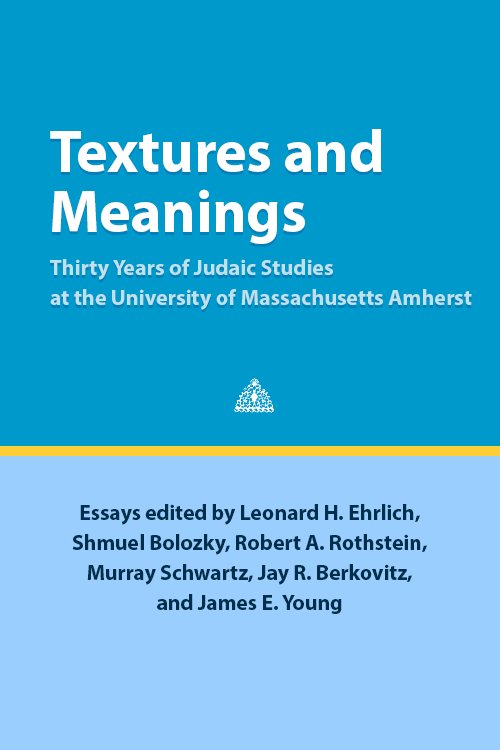Germany as Museum of Jewish History and a Laboratory for Jewish-Christian Relations
Howard Tzvi Adelman
This chapter is part of: Leonard H. Ehrlich et al. 2004. Textures and Meanings: Thirty Years of Judaic Studies at the University of Massachusetts Amherst
Download Chapter| Description |
|---|
| Howard Tzvi Adelman, like Berkovitz, deals with the interpenetrations of Jewish and surrounding societies and the concerns about purity and contamination that these interactions entail, but the focus shifts from France to Germany. Adelman’s essay recounts his travels in Germany in search of history and memory, evoking the writings and experience of the turn of the twentieth-century German Hebrew poet Tchernichowsky. He finds himself sensing the same ambivalence toward Germany that characterized previous responses, and responses to responses. Combining the roles of tourist, teacher and guide, Adelman’s reflections inexorably take him back to the Nazi era, its links with the medieval massacres of Jewish communities, and its echoes in the present. The victimization of Jews during the Black Death of 1349 evokes the violence of Kristallnacht in 1938. Adelman conveys a fine sense of the “struggle with the tension between universalism and particularism” that affects both Germans and Jews, the shifting boundaries of identity. He tracks the subtle ironies and parallels that interlace both German and Jewish identity, while reminding us of the catastrophic hatreds of the past. In a final irony, the Germany he finds today is one that eats hallah without consciousness of its cultural companionship with its Jewish past. |
-
Details
Published Published By Aug. 1, 2004 University of Massachusetts Amherst Libraries Citation Adelman H. 2004. Germany as Museum of Jewish History and a Laboratory for Jewish-Christian Relations. In Leonard H. Ehrlich et al. 2004. Textures and Meanings: Thirty Years of Judaic Studies at the University of Massachusetts Amherst
